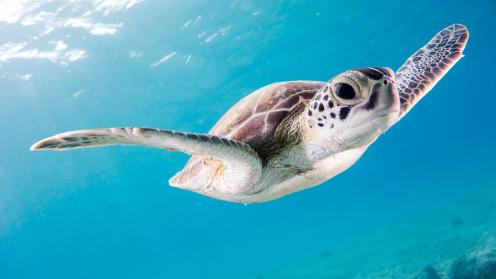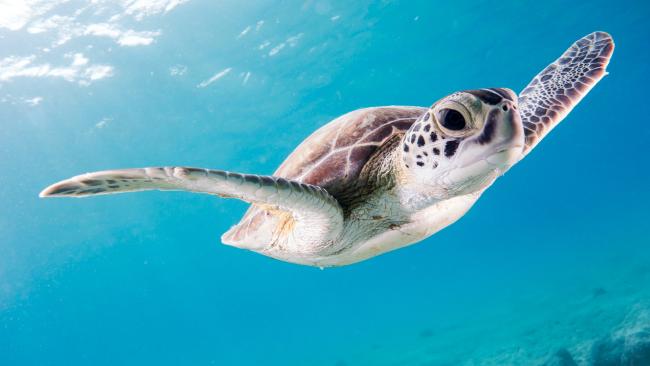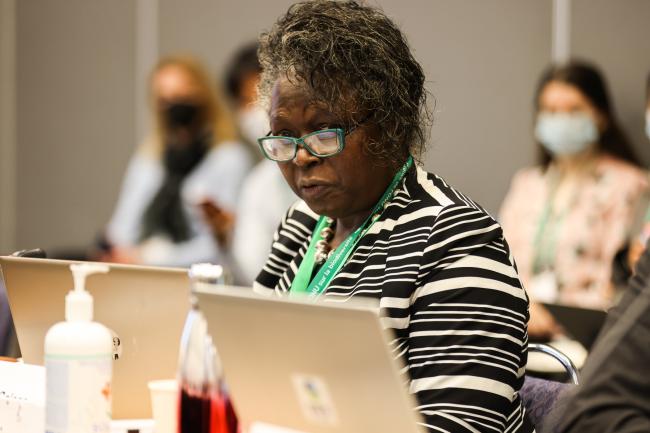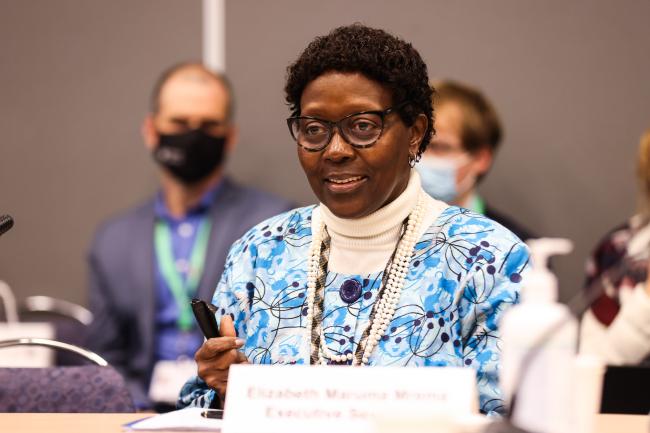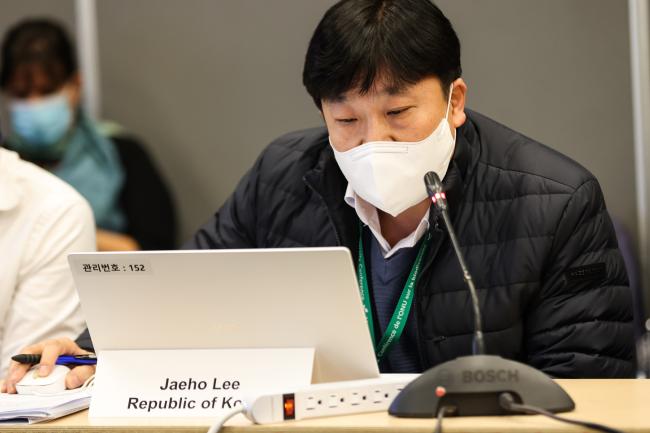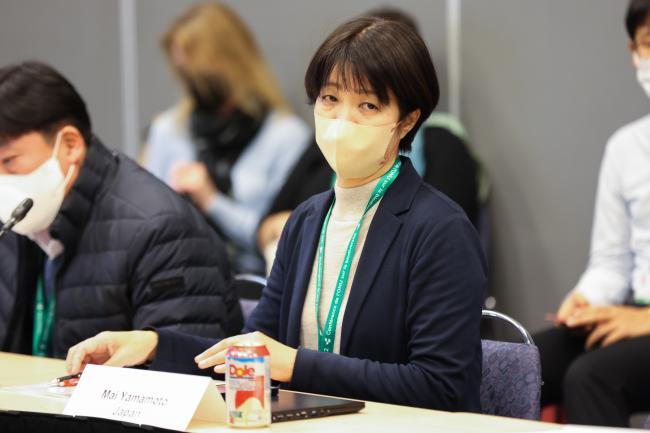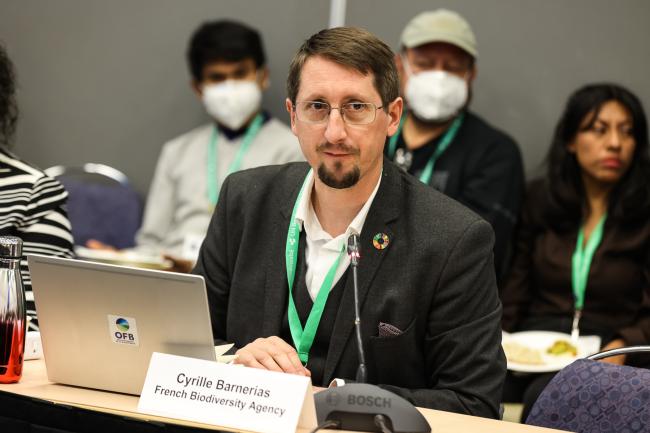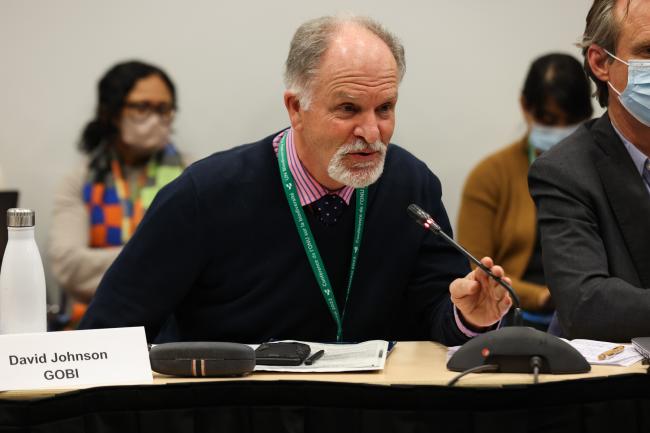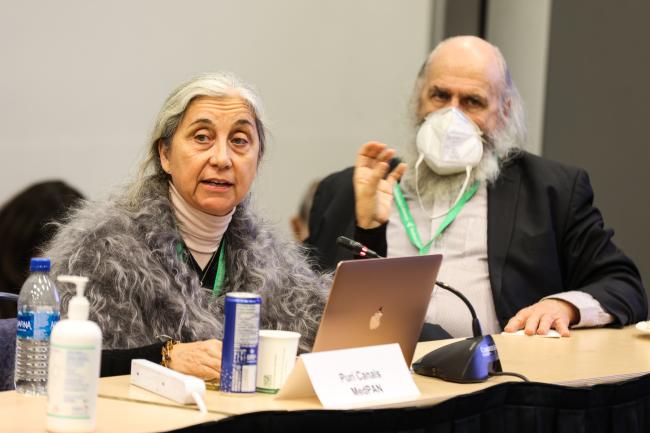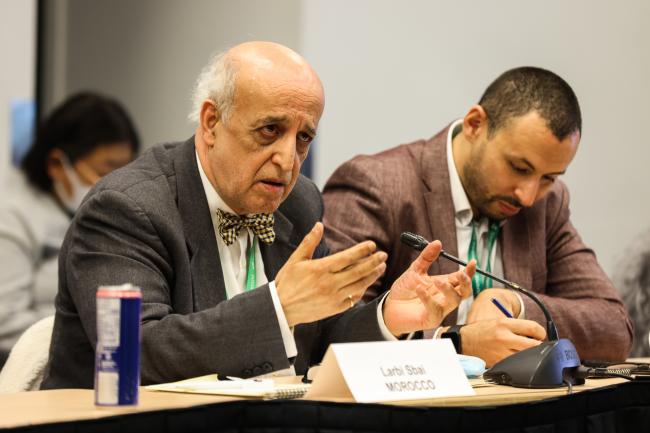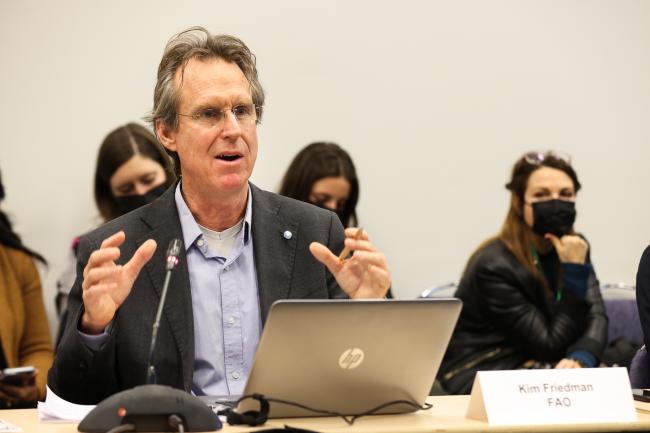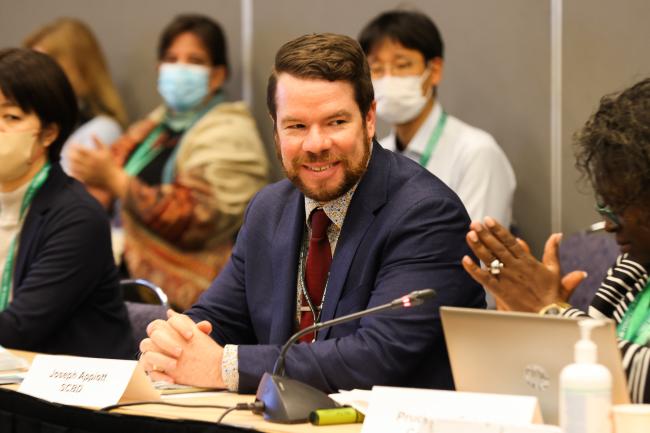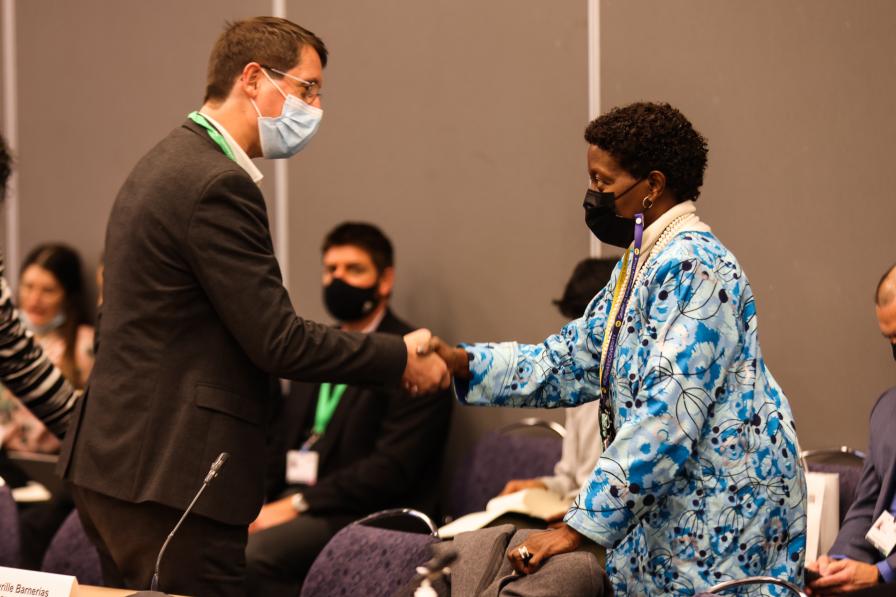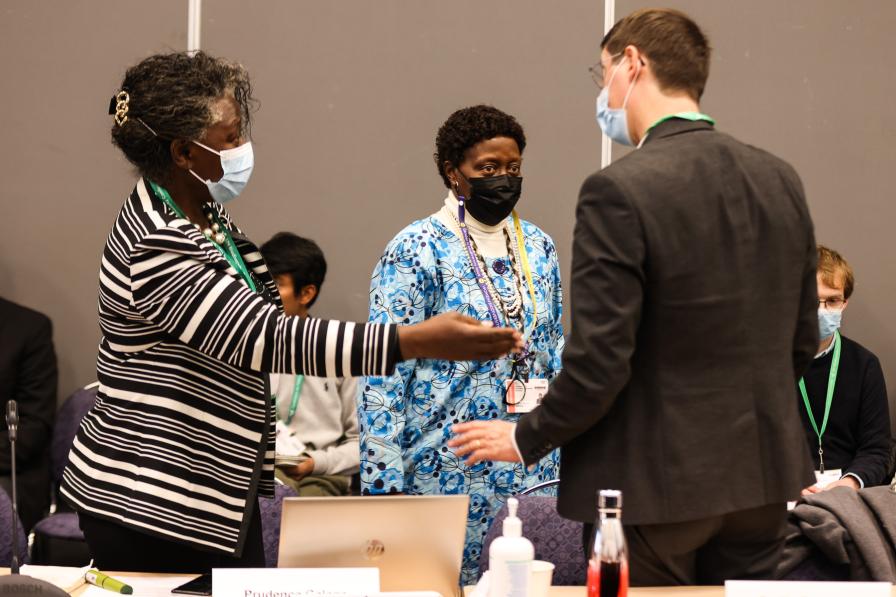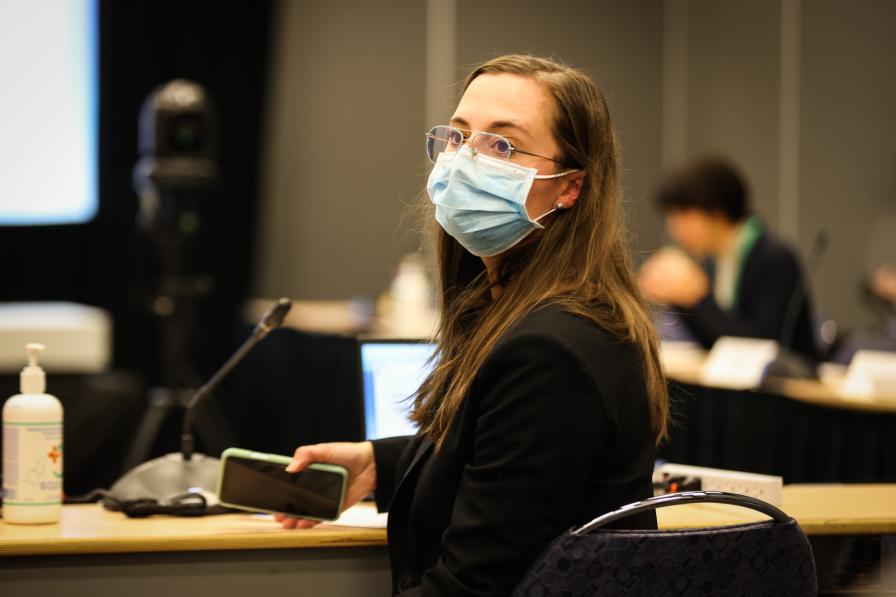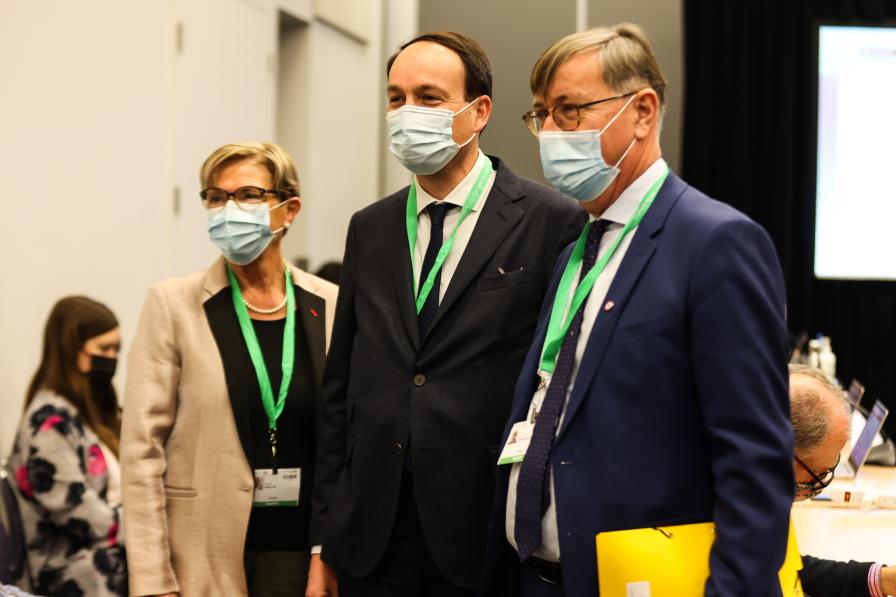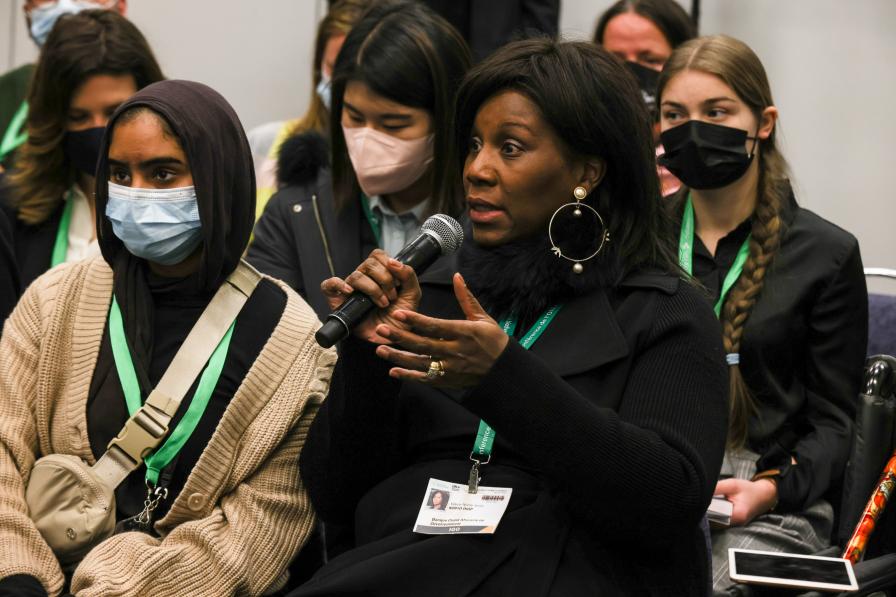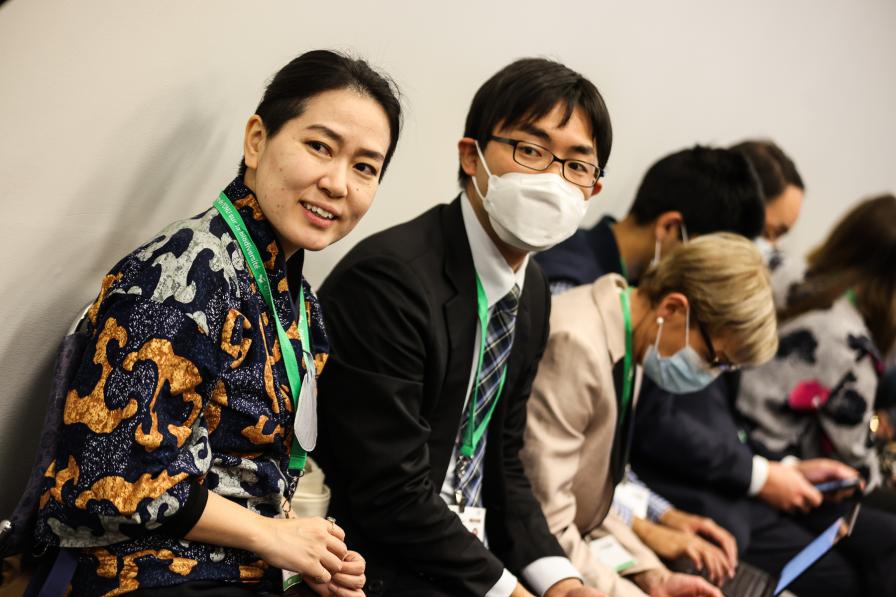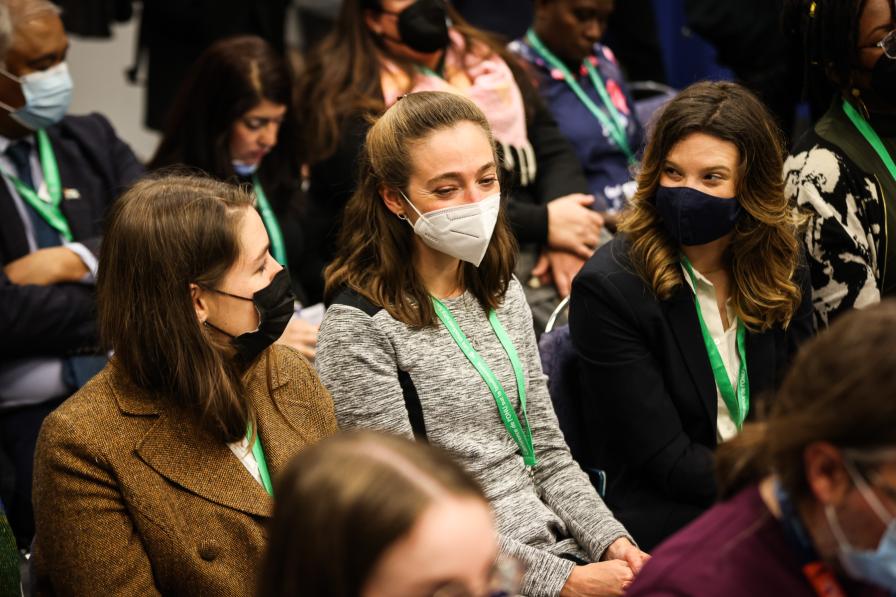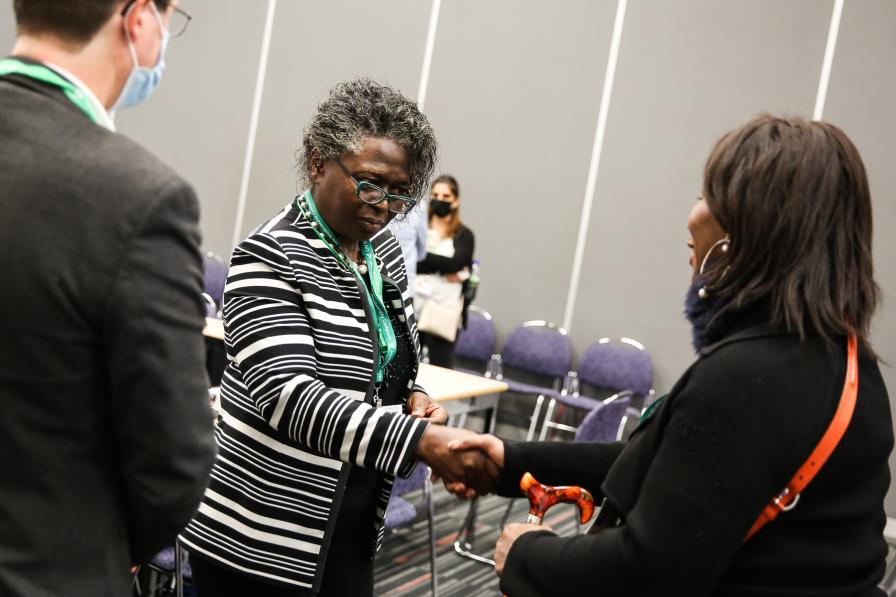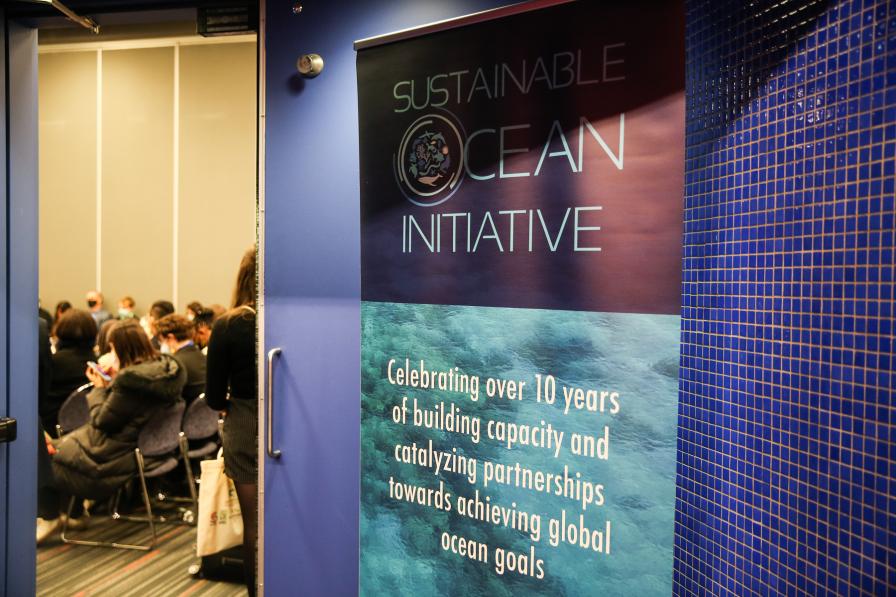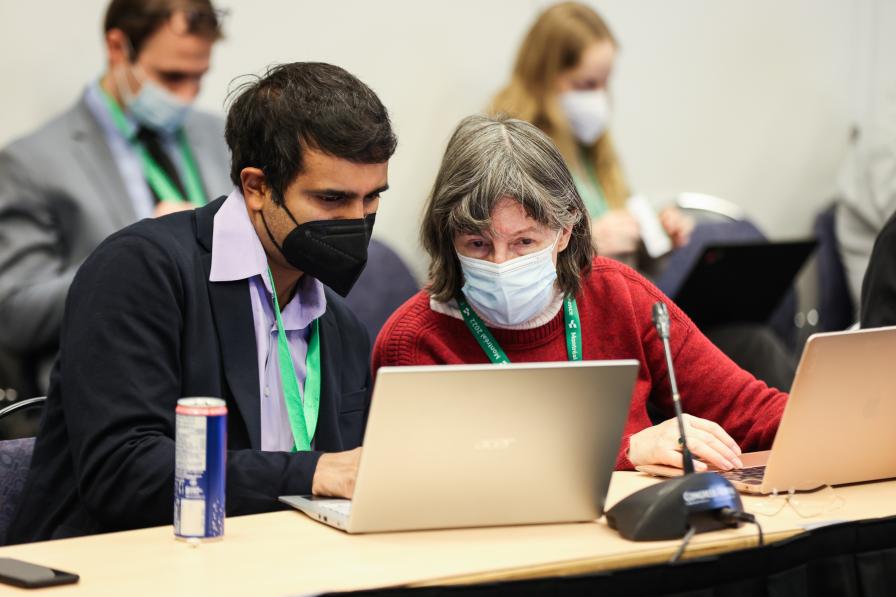About
Attendees dove into impact stories from the Sustainable Ocean Initiative, discussions on the role of the post-2020 global biodiversity framework for ocean-related capacity building, and potential future directions for the programme.
The Sustainable Ocean Initiative (SOI) is a capacity-building programme, developed by the CBD in 2010, to provide support, advice, and guidance to countries in their efforts to achieve global biodiversity targets in marine and coastal areas. This programme facilitates dialogue and coordination among countries and organizations, catalyzes partnerships, and builds on lessons learned. From the SOI Global Dialogue with Regional Seas Organizations and Regional Fishery Bodies to the SOI Training of Trainers programme, the various SOI activities aim to achieve a balance between the conservation and sustainable use of marine and coastal biodiversity, at the global, regional, national, and local levels.
This side event, moderated by Prudence Galega, Cameroon, reflected on: the history and achievements of the SOI, including through the SOI Impact Study; SOI’s impacts and achievements over the past decade; and perspectives and stories of some of those who have helped drive the SOI and/or have benefited from its capacity-building efforts. The role of the post-2020 global biodiversity framework (GBF) for Ocean-related capacity building and potential future directions for the SOI were also discussed. Galega noted how the SOI has catalyzed action and implementation of relevant Aichi Biodiversity Targets for coastal and marine environments, calling for further commitment and engagement to “bend the curve” for biodiversity protection.
Elizabeth Maruma Mrema, Executive Secretary, Convention on Biological Diversity (CBD), highlighted the event’s theme of learning from the SOI’s first decade to better build capacity to achieve the global Ocean goals needed for the GBF. She said degradation of 60% of the Ocean, including disappearance of 50% of coral reefs, would be even worse without it. She called for catalyzing implementation of the Aichi Biodiversity Targets through capacity building, which requires enabling conditions. She thanked several donor, including the Governments of Japan and the Republic of Korea, as well as the French Biodiversity Agency, for their tremendous support, but urged upscaling activities to ensure the next scientific Ocean assessment shows the situation improving.
Jaeho Lee, Ministry of Oceans and Fisheries, Republic of Korea, said his country has worked closely with the CBD Secretariat and SOI partners around the world for 12 years to implement cross-sectoral approaches for conservation and sustainable use of the Ocean, including through the hosting of three meetings, working for gender equality in Ocean trainers, and SOI training-of-trainers initiatives. He noted the Republic of Korea has supported building organizational capacity and helped foster opportunities for countries to enhance ocean conservation, including through Ecologically or Biologically Significant Marine Areas (EBSAs).
Mai Yamamoto, Ministry of the Environment, Japan, noted her country’s support to help countries strengthen their capacity for SOI activities since its establishment in 2010, by raising awareness of different tools to implement effective marine conservation actions, catalyzing conversations within governments, and getting communities involved.
Cyrille Barnérias, French Biodiversity Agency, said France’s actions include a moratorium on deep sea mining and protection of 30% of its seabed, but noted that efficient Ocean protection requires partnership with others. He said France supports the SOI for building bridges among different stakeholders and for building capacity to ensure everyone has enough skills and tools to protect the Ocean. He reiterated France’s support for the SOI in the coming years.
David Johnson, Global Ocean Biodiversity Initiative (GOBI), described best practices for capacity building, including through regional capacity-building workshops on ways for groups of countries to work together for common objectives and address complexities of related trends and targets. He stressed that the SOI builds capacity with tools like the Ocean Biodiversity Information System (OBIS) to estimate species distribution, underscoring the importance of knowledge transfer across sectors and regions for implementing a robust and holistic GBF.
Puri Canals, Mediterranean Protected Areas Network (MedPAN), said regional SOI activities enhance on-the-ground outcomes through regional workshops, learning exchange programmes, and training-of-trainers programmes. She said scoping analyses should identify countries’ priorities and capacity-building needs first, underlining information sharing and peer-to-peer learning in partnership with existing regional organizations to create synergies, provide skills, and raise awareness of resources in the region.
Larbi Sbaï, Morocco, lamented the “catastrophic” situation of biodiversity loss in the Ocean, noting the “monstrous” gap concerning biodiversity data in Ocean areas beyond national sovereignty. He noted the SOI’s importance for building national and regional capacity for marine spatial management, but called for strengthening governance to address overfishing, restore marine ecosystems, and establish dynamic scientific and technological cooperation to maintain warming below 1.5°C.
Kim Friedman, Food and Agriculture Organization of the UN (FAO), said achieving 100% management of the Ocean, including sharing living Ocean resources, requires cooperation from all stakeholders and Ocean management institutions, noting the SOI should ensure inclusiveness. He stressed potential synergies from cooperation between regional fisheries management and environmental bodies but said the complex GBF requirements for fisheries need translating into measures the broader community can undertake. He espoused the SOI dialogue for ensuring this, avoiding overlaps, bringing added value to activities, and developing common terminology.
Joseph Appiott, CBD Secretariat, highlighted a new publication on the role of marine and coastal biodiversity in National Biodiversity Strategies and Action Plans (NBSAPs), intended to give CBD Parties relevant information for implementing the GBF. He described the report’s computational analyses and twinned case studies to integrate marine issues into Parties’ NBSAPs.
On SOI’s future activities for GBF implementation, he underscored bringing together different sectors and building human, technical, and financial capacity to support Parties. He identified how mainstreaming biodiversity has been a key focus of the SOI as the global policy landscape becomes increasingly complex. On the role of the Ocean in the GBF, he stressed: crafting goals and targets to be generic and applicable to all biomes; better addressing drivers of biodiversity loss; and broader engagement of the Ocean community for addressing key capacity needs for the GBF.
In ensuing discussion, participants stressed: leveraging partnerships with regional organizations, such as the African Union; including development of project proposal outlines ready to be funded in training activities; developing co-mandates and relationships between organizations, not simply trying to sell one’s own mandate to the other; and ensuring messages reach high-level policymakers and generate political will. Galega underscored the need for innovative monitoring and reporting activities for the next SOI phase and brought the meeting to a close.
Organizers: CBD Secretariat
Contact: Joseph Appiott, CBD Secretariat joseph.appiott@un.org
For more information: https://www.cbd.int/marine/soi/booklet-soi-10years-en.pdf
Written and edited by Tallash Kantai, Vijay Kolinjivadi, PhD, and Deborah Davenport, PhD.
All ENB photos are free to use with attribution. For this event, please use: Photo by IISD/ENB | Natalia Mroz
To receive free coverage of global environmental events delivered to your inbox, subscribe to the ENB Update newsletter.
